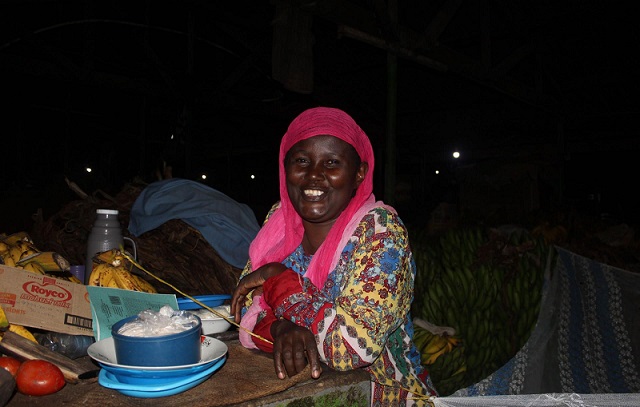
Kampala, Uganda | THE INDEPENDENT | 50-year-old Amina Kareem has spent her nights in the market for close to two months now as she struggles to make ends meet amid the ongoing lockdown.
Her decision was in response to a call by President Yoweri Museveni to reduce contact with family members as a measure to control the spread of coronavirus disease COVID-19 while sustaining the food supply chain. But Amina says she never expected it to be the beginning of her most challenging experience in life.
On this day, Amina went to work like any other day. However, what started as a normal day has turned into months of lengthy shifts in the market since the ban on public transport on March 25. Amina used to commute from Kito village in Kira sub county, Wakiso district to come to Nakawa market on a daily basis.
But the ban on public transport meant that she had no means of travelling back and forth yet she also could not walk the distance which would take her about three and a half hours.
“The first night I decided to try it out because the thought of walking was scary. I had planned on leaving the next day. But I failed. I have never gone back,” Amina said, while describing the first night as a nightmare decked with moments of coldness, fear and agony.
At the market, Amina sleeps at the doorway of her stall up on a makeshift bed made out of dry banana leaves heaped about three inches off the ground. There, she lays a small mat and a woolen scarf and covers herself with a blanket.
From the comfort of her home, her work day normally starts at 7 am. In the market, she wakes up as early as 5 am to beat the long queues at the bathrooms. The market has an eight stance water toilet that serves as both a toilet and bathroom. Amina explains that for the first five days of her stay, she was too embarrassed to go to the bathroom. She used a damp towel to clean up.
Being stuck in the market has not kept Amina away from the trials of a bread earner. Even in the market, she looks after her ten-year-old grandchild who she is nursing a toothache. She says she had no other choice but to drag the child to the market.
Amina told URN that the struggle she is going through is worth it because it helps her support her family of 16 people.
The lockdown has not just reduced the working day by half but has also reduced the number of people willing to walk to the markets to buy fruits and other produce. Amina says that although the earning is less, it is worth every night of uncomfortable sleep.
Before the lockdown, Amina used to sell bananas worth 200,000 Shillings on a good day. Now with few people going to markets because of restrictions on transport, Amina describes her earnings as bittersweet.
Four stalls away from Amina is Harriet Kirabo a mother of a three-month old baby who re-echoes what Amina says.
At the moment, half of Amina’s stock is ripe. Every other day, the bananas continue to ripen. Some are already turning brown. This she says is a loss that will end up being inedible and thrown away as part of garbage because her customers are stuck in their homes.
This lockdown has opened Amina up to experiencing new fights. In addition to sleeping out of her house, for the first time since she got married, Amina is not able to prepare Iftar or the pre-dawn meal for her family as they go through the holy month of Ramadan.
“My husband called me to ask whether I was on my way home to prepare him a meal. Telling him I would not be able to was very hard for me but I had to. Until I can go home, everyone will have to cater for themselves now. That has never happened before,” she said.
There are 400 other vendors going through an ordeal in Nakawa market. In Kampala, over 3,000 vendors share her story. While many of them count the days until the end of the lockdown, scientists and economists warn that life will not be the same after lockdowns are lifted.
******
URN
 The Independent Uganda: You get the Truth we Pay the Price
The Independent Uganda: You get the Truth we Pay the Price





